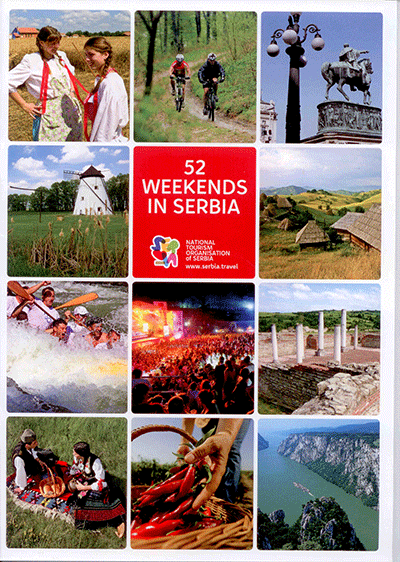Speaker of parliament, foreign minister to visit Korea
The following are details of an interview with Ambassador Zoran Kazazovic of the Republic of Serbia in Seoul published on the occasion of the National Day of Serbia on Feb. 15, 2016.--Ed
Question: Please introduce the important developments scheduled between Korea and your country, including the possible visit of your Head of Government to Korea for a summit meeting or any other purpose(s). Any economic and/or other delegation(s) coming to Korea.
Answer: Serbia and Korea have very good and friendly relations. Korea is one of our most important partners in Asia and Pacific region. Having in mind our good political relations, we focus on developing bilateral economic cooperation, including increasing overall trade volume, as well as attracting more Korean investors and tourists to Serbia.
This year we are planning to have visits of our highest officials and dignitaries to the Republic of Korea-speaker of the Serbian Parliament, Minister of Foreign Affairs, as well as the representatives of the government in charge of the economic cooperation and other fields as well.
Serbia and Korea are developing and strengthening partnership in many areas, including police cooperation, cyber security, e-government, diplomatic academies, urban planning and development, etc.
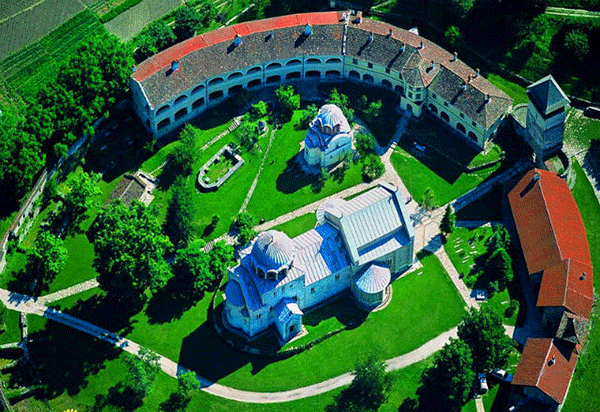
Q: Please present the details of your Head of Government, including major achievements.
A: Serbia today is politically and socially stable country. It has a strong Government, headed by PM Aleksandar Vucic, the leader of the “Serbian Progressive Party”, the most influential political force in Serbian National Assembly.
On the internal level, the Government's key priorities remain the recovery of the national economy, fiscal consolidation, creation of the most favorable business environment, comprehensive public sector reforms and the fight against corruption and organized crime.
The reform agenda was sealed by the arrangement Serbia struck with the IMF a year ago, and the three positive revisions suggest a successful implementation of the ambitious program. As a result, the general government deficit has been cut from 6.7% GDP in 2014 to less than 3% of GDP in 2015. Although it was expected that the fiscal consolidation program would cause a recession, our 2015 growth rate was positive, close to 1%. We perceive this as a result of the efficient design and credibility of the economic reforms program. Namely, before starting the consolidation, we have started a set of competitiveness enhancing reforms, by making labour markets more flexible, tackling the shadow economy, reforming the bureaucratic procedures for construction permitting and bankruptcy legislation, introducing e-filing for tax returns, accelerating development of infrastructure, etc.
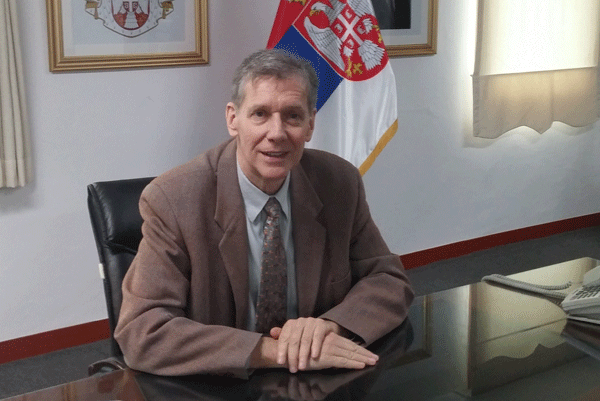
As a result of these reforms, in 2015 Serbia jumped from 91st to 59th position on the Doing Business rankings, which is the single largest change in a country’s position in our part of the world. Macroeconomic stabilization and competitiveness-enhancing reforms have had a positive impact: Foreign Direct Investments (FDIs) in Serbia posted growth of close to 30% in 2015.
Regarding the pending issue of the Kosovo and Metohija province, Serbia is dedicated to the dialogue with Pristina provisional institutions, and is committed to implement the Brussels Agreement made under the auspices of the EU, in order to reach stable, comprehensive and long-lasting solution. International community highly values our regional policies, particularly reconciliation process with neighbouring countries and promotion of the regional economic cooperation, which were displayed on several occasions through the visits of PM Aleksandar Vucic to the countries in the region. Serbia will keep on implementing such policies in the years to come.
On the international level, the main priority of the Serbian government is that Serbia becomes a full member of the EU by the year 2020. The accession negotiation process with EU already started, by opening chapters 32 and 35 in December 2015.
The year 2015 was very challenging one for Serbia, having in mind our chairmanship to the OSCE. International community was satisfied by the way in which Serbia chaired the OSCE. We did our best to profile ourselves as a reliable and credible partner, and accordingly to our capabilities, contribute to resolving the issues of importance for stability and security in Europe and beyond. Now as a member of Troika of OSCE, we took over the chair for this year of Contact Group for Co-operation with Asian Partners, which include Korea, Japan, Australia, Thailand and Afghanistan. As one of the stakeholders in the European security, Serbia hopes that it will help to convey to Asian Partners the European experiences in creating its own regional security cooperation architecture--OSCE.

Q: Volume of bilateral trade, its outlook in the next 12 months?
A: Overall bilateral trade value between Serbia and Korea is around 200 million USD, Korean exports to Serbia amounts 73 million USD and Korean investments in Serbia amount 60 million USD. A few Korean companies are operating in Serbia. One of them, Yura Company (car electric parts producer, ranked among 500 biggest Korean companies) is a real success story. Yura Company has opened four factories and employs more than 5000 people in Serbia. Samsung Company has recently opened its branch office in Belgrade. Korean brands like Samsung, LG, Hyundai-KIA are well known in Serbia for their high quality, acceptable prices and reliability.
KOTRA opened its branch office in Serbia in December 2015, which will be a strong boost for expanding bilateral economic cooperation between Serbia and Korea. Serbia is one of the gates for Korean access to emerging markets with huge growth potential in the Central and Southeast Europe.
Serbian government has carried out deep economic reforms for establishing most favorable environment for foreign investors. Besides the EU, Serbia has FTAs with the Russian Federation (Serbia is the only country outside of CIS to have FTA with Russia), Turkey, Kazakhstan and Belarus, as well as a customs-free access to CEFTA and EFTA countries, which would enable Korean investors access to these markets as well.
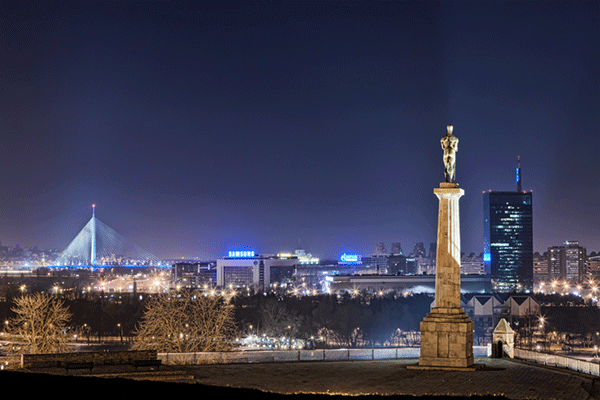
As possible sectors for cooperation we see energy, infrastructure, agriculture and tourism. Serbia's government is determinated to promote Serbian market and its favorable business environment through various activities, which include organizing business and investments seminars abroad and domestically. Serbia now represents a real hotspot for foreign investors, and it is the right time for Korean companies to come to Serbia, as there are numerous comparative advantages for them in our country.
Q: Please introduce the National Day of Serbia.
A: February 15 is known as “Statehood day” ? the National Day of the Republic of Serbia. It is a very special day in the Serbian history. Two major historic events happened on this date, which represent cornerstones of the modern Serbian state. First, in the year 1804, the first Serbian uprising against Ottoman occupation took place and, after a long struggle, Serbia regained freedom and independence. Second, in the year 1835, Serbia adopted its first Constitution. It was one of the most progressive and liberal constitutions in the 19th century in Europe, and it set up foundations of democracy and rule of law. The Constitution was the expression of needs of Serbian society at that time: national emancipation, breaking the feudal institutions and autocratic rule. This Constitution is known as “Candlemas Constitution”, by religious holiday which is celebrated on February 15.
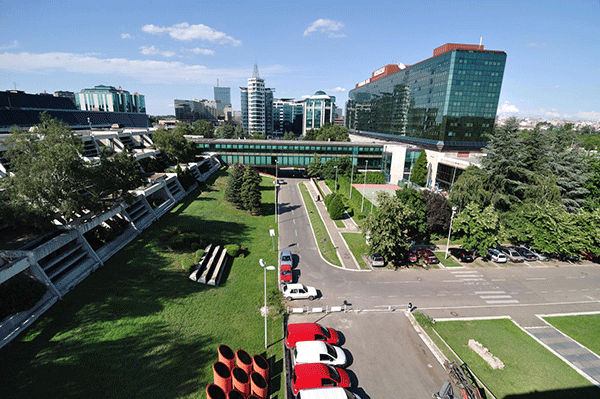
Q: What are the major tourist destinations of your country?
A: Having in mind growing interest of Korean tourists to visit the Balkans and Southeast Europe region as new and unexplored destinations, there's a huge potential for the cooperation in this field. Serbia is located on the Balkan Peninsula in the Southeast Europe, at the crossroads of the main routes linking Europe and Asia, and is famous for its eventful and turbulent history.
We are dedicated to promote more Serbia's tourism potentials on the Korean market, since our country has so much to offer. It abounds with tourist hotspots ? Serbian Orthodox Christian monasteries with astonishing frescoes, pearls of medieval art and ancient Roman archeological sites (17 Roman emperors were born on the territory of today's Serbia), many of which are designated UNESCO World Heritage sites; boat cruisings on the river Danube-second longest river in Europe; national parks with preserved and pristine wild nature; organic food and Serbian traditional cuisine which reflects different influences ? Turkish, Hungarian, Greek, Italian; friendly and hospitable people.
Serbia's capital Belgrade, located at the confluence of Sava and Danube rivers, and one of the oldest cities in Europe (founded under the name Singidun around 279 BC by Celtic tribe Scordiscs), is famous for its history, culture and vibrant nightlife.
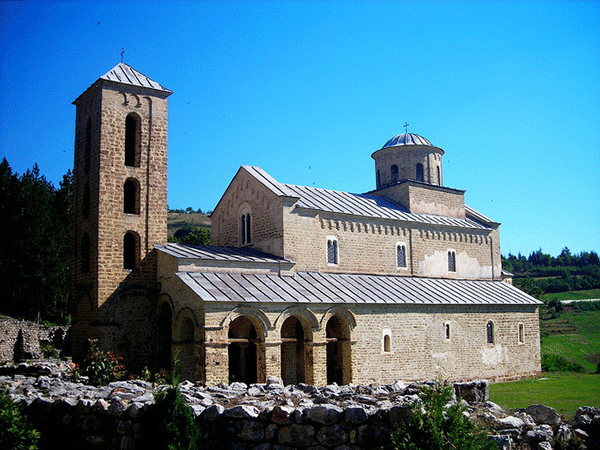
Q: What are the other important aspects of Serbia?
A: Serbian cinema is one of the most dynamic smaller European cinematographies. Serbian cinema dates back to 1896 with the release of the oldest movie in the Balkans, The Life and Deeds of the Immortal Vo?d Karađorđe, a biography about Serbian revolutionary leader, Karađorđe.
The most famous Serbian filmmaker is Emir Kusturica who won two Golden Palms for Best Feature Film at the Cannes Film Festival, for When Father Was Away on Business in 1985 and then again for Underground in 1995. Other renowned directors include Goran Paskaljevi?, Du?an Makavejev and Goran Markovi? among others. Steve Tesic, Serbian-American screenwriter, won the Academy Award for Best Original Screenplay in 1979 for the movie Breaking Away.
Serbia and Korea cooperate in the field of cinema as well. There`s a growing interest for Korean drama and other Korean series in Serbia, and Korean film The Tenor-Lirico Spinto, was shot mainly in Serbia.
Serbian music is characterized by its diversity, due to various influences and also by some unique, original genres. Most popular music festival are Gu?a Trumpet Festival with over 300,000 annual visitors and international rock festival EXIT in Novi Sad. Exit was officially proclaimed as the “Best Major European festival” at the EU Festival awards 2014. More than 2.5 million people from over 60 countries around the world visited this festival so far. Other festivals include Ni?ville Jazz Festival in Ni? and Gitarijada rock festival in Zaje?ar. Former rock musician, and nowadays author of music for films and big global concert attraction is Goran Bregovic, with his current band Orchestra for Weddings and Funerals. His music is used in some Korean films.
Sports: Sports play an important role in Serbian society, and the country has a strong sporting history. The most popular sports in Serbia are football, basketball, tennis, volleyball and water polo.
The success of Serbian tennis players has led to an immense popularization of tennis in Serbia. Novak ?okovi?, eleven-times Grand Slam champion is currently No. 1 in the world, and Ana Ivanovi? (French Open champion) and Jelena Jankovi? were both ranked No. 1 in the world.
Although small in terms of territory and population, Serbia is a “superpower" in collective sports-it`s one of the leading volleyball, basketball and water polo countries in the world, having won many World, Olympic and European Championship titles.
